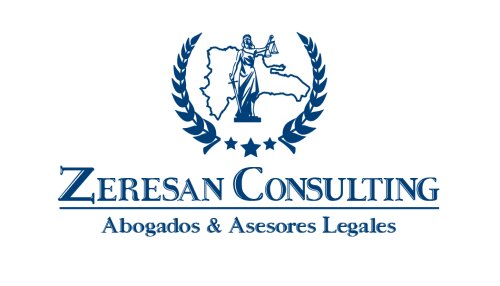Best Sexual Harassment Lawyers in Santo Domingo Este
Share your needs with us, get contacted by law firms.
Free. Takes 2 min.
List of the best lawyers in Santo Domingo Este, Dominican Republic
About Sexual Harassment Law in Santo Domingo Este, Dominican Republic
Sexual harassment is a significant issue globally, and the Dominican Republic is no exception. In Santo Domingo Este, like the rest of the country, sexual harassment is recognized as a violation of human rights and an impediment to equality, dignity, and work rights. The law defines sexual harassment as unwanted and unwelcome behavior of a sexual nature that creates a hostile, intimidating, or offensive environment. Efforts are ongoing to address and reduce instances of sexual harassment, supported by both legal frameworks and civil society organizations working in the region.
Why You May Need a Lawyer
Legal assistance may be necessary in various situations involving sexual harassment, including:
- Experiencing sexual harassment in the workplace, educational settings, or public places.
- Needing to file a formal complaint or take legal action against an offender.
- Requiring advice on your rights as a victim of sexual harassment.
- Experiencing retaliation as a backlash to reporting harassment.
- Seeking a better understanding of local laws and protections available to victims.
Local Laws Overview
The Dominican Republic has specific laws tailored to combat sexual harassment, particularly in the workplace. Key aspects include:
- Labour Code: The code specifies that any form of sexual harassment by employers, superiors, or co-workers is unacceptable and mandates sanctions for perpetrators.
- Protections Under the Constitution: The Dominican Constitution enshrines the rights to dignity and equal treatment, offering a foundational legal basis against harassment.
- Legal Consequences: Offenders can face civil and criminal charges, leading to fines, imprisonment, or both, depending on severity and recurrence.
- Reporting Mechanisms: Victims can report incidents to their employer, unions, or directly to relevant authorities for investigation.
Frequently Asked Questions
1. What qualifies as sexual harassment in Santo Domingo Este?
Sexual harassment includes unwanted sexual comments, gestures, or physical contact that create an intimidating, hostile, or humiliating environment for the victim.
2. How can I prove a case of sexual harassment?
Evidence can include written records, witness testimonies, audio/visual recordings, or any other material that can substantiate the harassment claim.
3. Can I report harassment anonymously?
Anonymous reports can be challenging to pursue legally, but they may still be submitted to organizational or governmental bodies for investigative action.
4. What should I do if I am a victim of sexual harassment?
Document the incidents meticulously, gather any potential evidence, and seek immediate support from friends, family, or legal advisors.
5. Can I face retribution for reporting sexual harassment?
Legal protections exist to prevent retaliation; however, it is crucial to work with a lawyer for guidance through the process to minimize risks.
6. Are there any time limits to report sexual harassment cases?
Time frames can vary, so it is advisable to seek legal counsel promptly to understand specific deadlines that may apply to your situation.
7. What are my employer's responsibilities regarding sexual harassment?
Employers must implement and enforce policies that prevent harassment and provide procedures for reporting and addressing complaints.
8. Can I sue my harasser in civil court?
Yes, victims can pursue civil action for damages, especially if they have suffered significant harm or loss due to harassment.
9. Are there support services for victims of sexual harassment in Santo Domingo Este?
Yes, various organizations offer counseling, legal assistance, and support for victims, including both governmental agencies and NGOs.
10. How can I ensure my case is taken seriously?
Present a well-documented account of events, seek legal advice, and remain persistent throughout the process to enhance credibility and effectiveness.
Additional Resources
For further assistance and support, consider reaching out to these resources:
- Ministry of Women: Offers resources and support for victims of sexual harassment and other gender-based violence.
- National Office for the Defense of Women: Provides legal assistance and guidance for women facing harassment.
- Local NGOs: Organizations like PROFAMILIA and others offer support services, including counseling and legal advice.
Next Steps
If you believe you need legal assistance regarding sexual harassment:
- Collect and organize all relevant information and documentation of the incidents.
- Consult with a lawyer specialized in sexual harassment laws to evaluate your case.
- Consider reaching out to local resources for interim support and advice.
- Decide on a course of action-is it filing a formal complaint, pursuing legal action, or seeking resolution through mediation.
- Maintain open communication with your legal advisor and follow the suggested legal procedures to ensure your rights are protected.
Lawzana helps you find the best lawyers and law firms in Santo Domingo Este through a curated and pre-screened list of qualified legal professionals. Our platform offers rankings and detailed profiles of attorneys and law firms, allowing you to compare based on practice areas, including Sexual Harassment, experience, and client feedback.
Each profile includes a description of the firm's areas of practice, client reviews, team members and partners, year of establishment, spoken languages, office locations, contact information, social media presence, and any published articles or resources. Most firms on our platform speak English and are experienced in both local and international legal matters.
Get a quote from top-rated law firms in Santo Domingo Este, Dominican Republic — quickly, securely, and without unnecessary hassle.
Disclaimer:
The information provided on this page is for general informational purposes only and does not constitute legal advice. While we strive to ensure the accuracy and relevance of the content, legal information may change over time, and interpretations of the law can vary. You should always consult with a qualified legal professional for advice specific to your situation.
We disclaim all liability for actions taken or not taken based on the content of this page. If you believe any information is incorrect or outdated, please contact us, and we will review and update it where appropriate.











